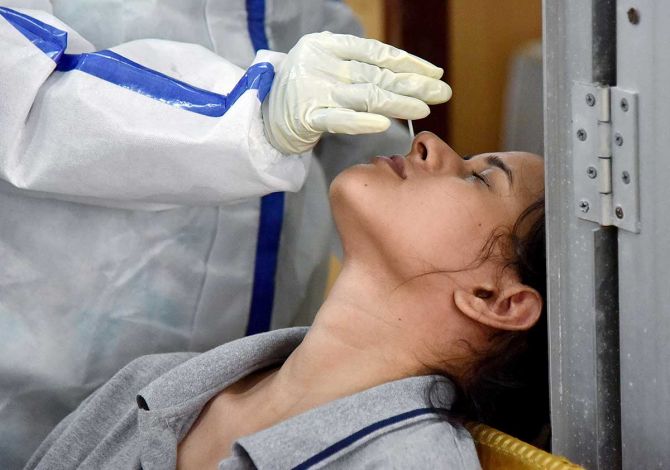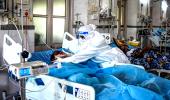A set of seven symptoms, considered together, can be used to maximise detection of Covid-19 in the community, according to a study.

The research, published on Wednesday in the journal PLOS Medicine, found that loss or change of smell, loss or change of taste, fever, new persistent cough, chills, appetite loss, and muscle aches are the jointly predictive symptoms.
The rapid detection of SARS-CoV-2 infection in the community is key to ensuring efficient control of transmission, the researchers said.
When testing capacity is limited, it is important to use tests in the most efficient way possible, including using the most informative symptoms for test allocation, they said.
In the latest study, researchers from Imperial College London, the UK, obtained throat and nose swabs with valid SARS-CoV-2 polymerase chain reaction test results from 1,147,345 volunteers aged five years and above in the UK.
The data was collected over eight testing rounds conducted between June 2020 and January 2021 as part of the REal-time Assessment of Community Transmission-1 study.
The participants were asked about symptoms they experienced in the week prior to testing. A model was developed based on the data obtained during rounds two to seven.
The researchers selected seven symptoms as jointly positively predictive of PCR positivity: loss or change of smell, loss or change of taste, fever, new persistent cough, chills, appetite loss, and muscle aches.
In round eight, testing people in the community with at least one of the seven selected positively predictive symptoms gave sensitivity, specificity, and positive predictive values of 74 per cent, 64 per cent, and 9.7 per cent, respectively.
Modelling suggested that the use of the seven symptoms identified for PCR test allocation would result in 30 per cent to 40 per cent of symptomatic individuals in England being eligible for a test, the researchers said.
They noted that if all the eligible people were tested, it would result in the detection of 70 per cent to 75 per cent of positive cases.
In order to improve PCR positivity detection rates and consequently improve control of viral transmission via isolation measures, the researchers propose to extend the list of symptoms used for triage to all seven symptoms they identified.
"These findings suggest many people with Covid-19 won't be getting tested -- and therefore won't be self-isolating -- because their symptoms don't match those used in current public health guidance to help identify infected people," said Paul Elliott from Imperial College London.
"We understand that there is a need for clear testing criteria, and that including lots of symptoms which are commonly found in other illnesses like seasonal flu could risk people self-isolating unnecessarily," Elliot said.
The findings on the most informative symptoms mean that the testing programme can take advantage of the available evidence, helping to optimise the detection of infected people, the researchers added.












 © 2025
© 2025